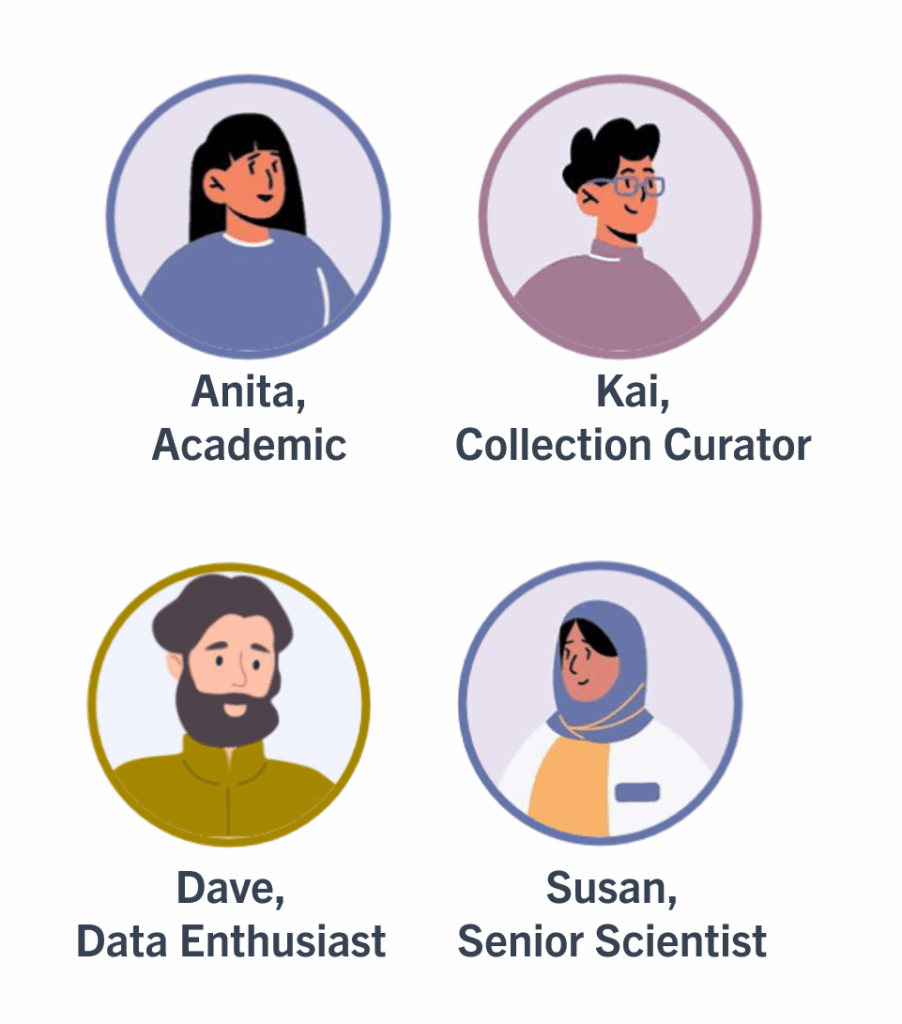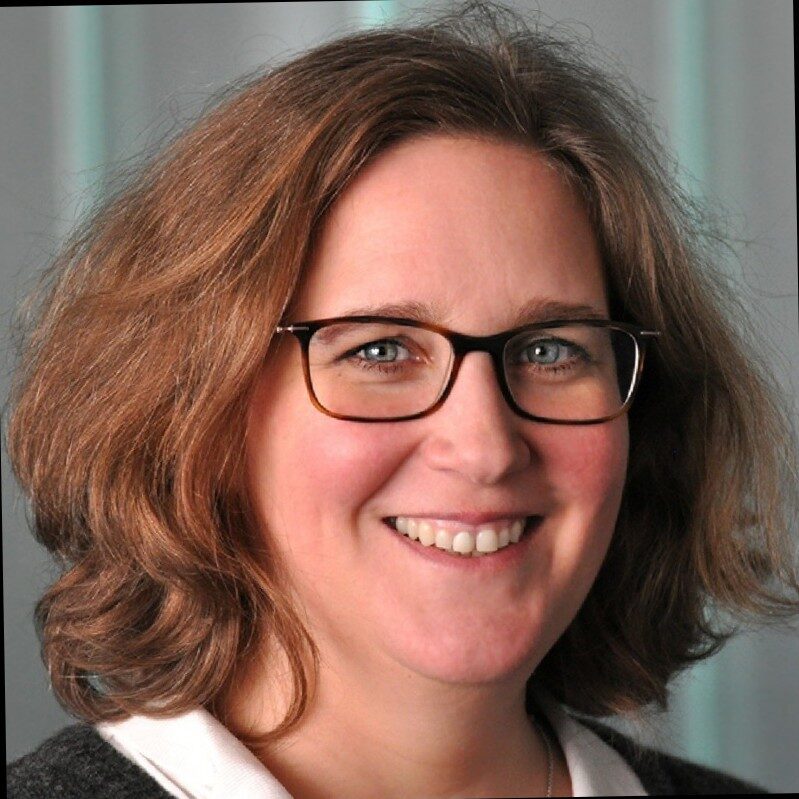My main task at WiNoda is to create self-study courses on various topics that we want to make available via Moodle.
The range of courses on research data management is already quite large. However, many courses are still somewhat generic – or very specific. For example, there are excellent programs for training data stewards – but this qualification does not meet the needs of a collection curator or excavation manager.
That is why we aim to identify practical use cases from the everyday work of our ‘target group’ in order to make the transfer into their own professional routine as easy as possible. After all, it is difficult enough to integrate new procedures, tools, methods and laws without having to translate from an unfamiliar discipline or professional culture.
But how do we actually envision our community? And how do we keep them in focus?

To do this, we developed four exemplary ‘personas’ right at the start of the project: ‘Anita Academic’ (fun fact: before I joined the project, she was still called Asta… 🙂 ) and ‘Susan Scientist’ represent ‘our’ research disciplines as an international archaeology PhD student and an established dragonfly researcher respectively, while ‘Kai Curator’ drives the digitization of collections with the support of ‘Dave Data Enthusiast’ (see also: https://zenodo.org/records/14850505).
Do you recognize yourself?
Or do you work with natural history data, but in a science-related field – for example as a journalist looking for reliable information on the dwindling biodiversity of German insects? Or as an employee of the building authorities who has to take into account the habitat of rare animals or potential archaeological finds in major projects?
We are happy to help these groups, too – join our events, or contact our helpdesk …
Even if you do not belong to any of these groups – we are delighted that you are joining us here!
All our teaching materials will be made available to the entire public as Open Educational Resources (OER). You can certainly transfer and adapt the information that interests you to your own questions.
And if our examples are not from your area of interest, feel free to take a look at the neighboring projects! We are planning to introduce some of the other data competency centers here soon. Stay tuned!

As an academic staff at the DAI, my main responsibility for WiNoDa lies in the creation of self-study courses on discipline-specific data literacy.
Hands-on and interactive – my goal is: less technical jargon, more “aha” moments.
Because we are all working with data!
